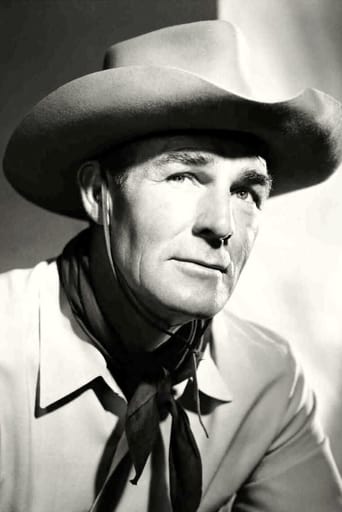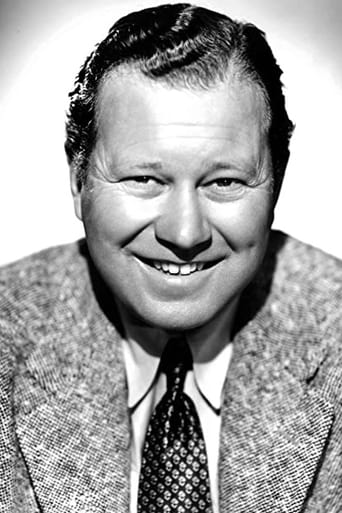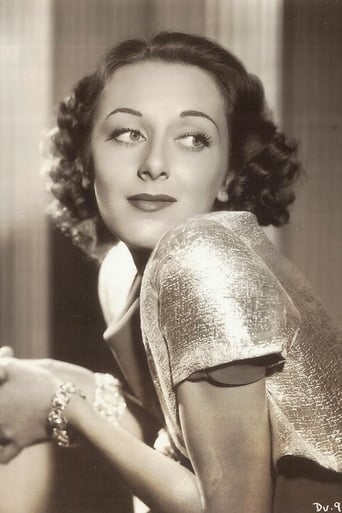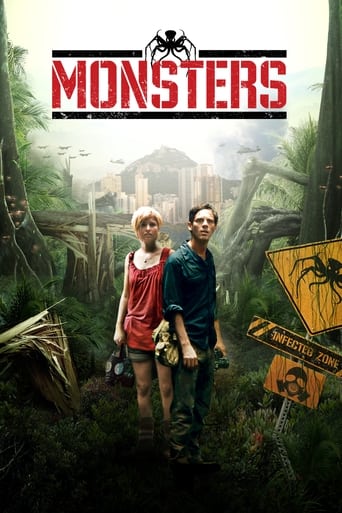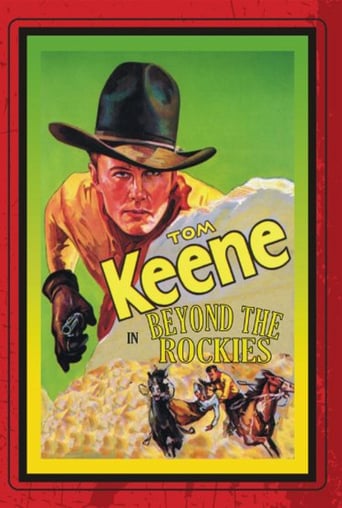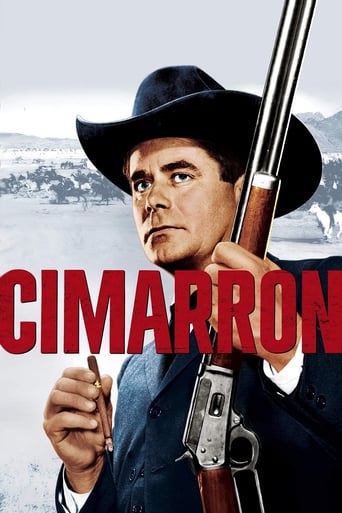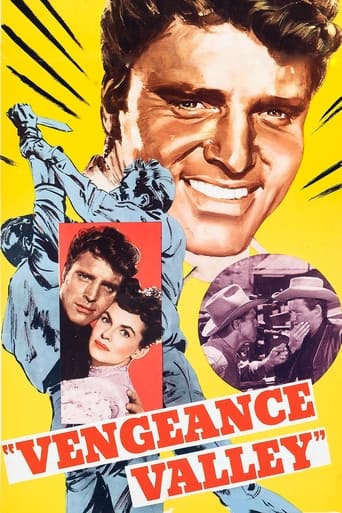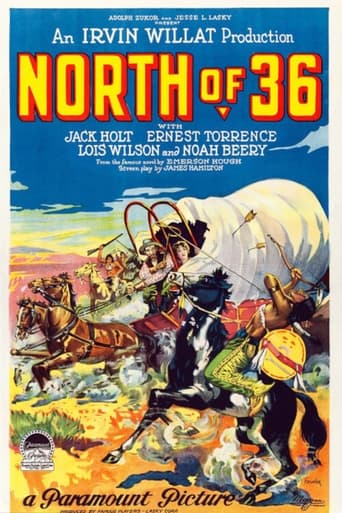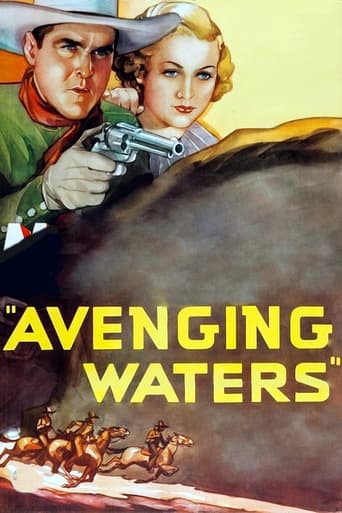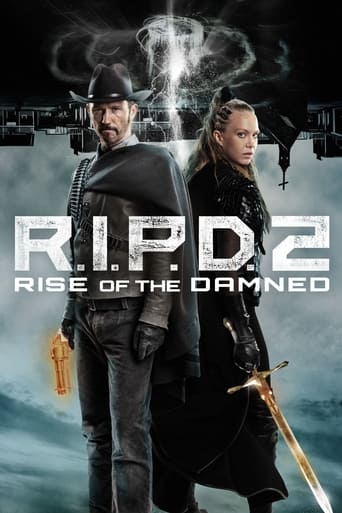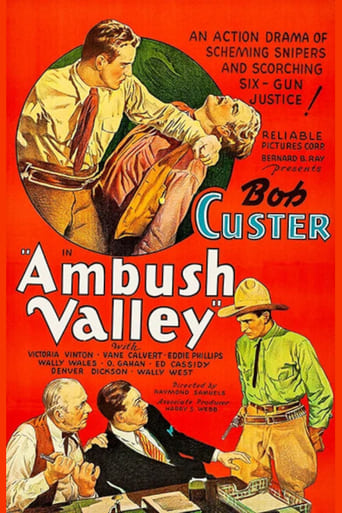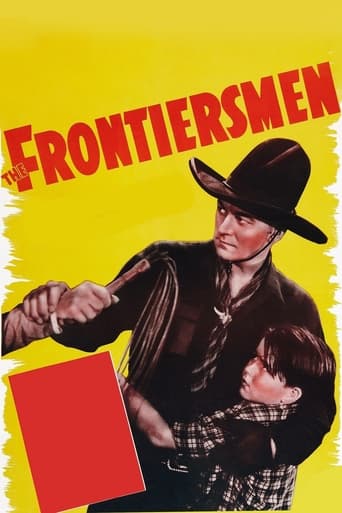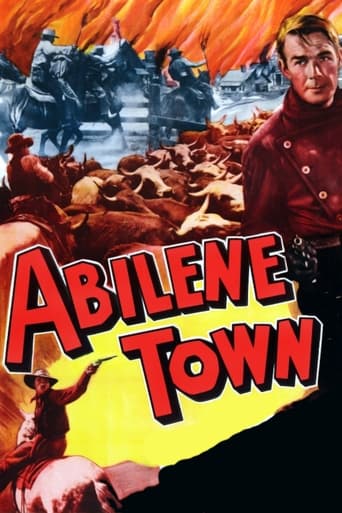
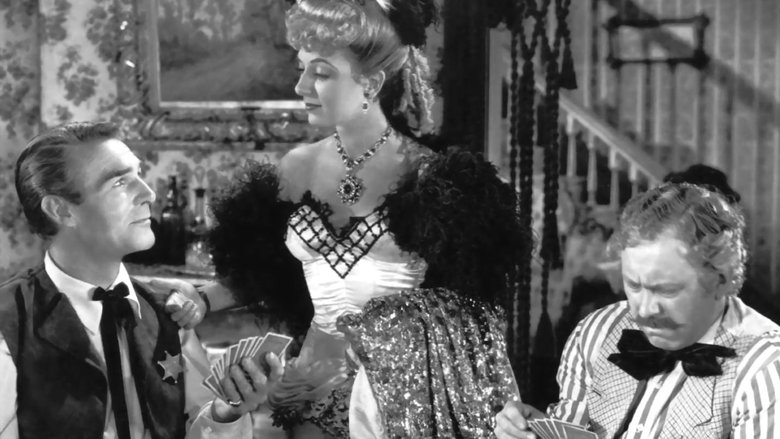
Abilene Town (1946)
Marshall Dan Mitchell, who is the law in Abilene, has the job of keeping peace between two groups. For a long time, the town had been divided, with the cattlemen and cowboys having one end of town to themselves, while townspeople occupied the other end. Mitchell liked it this way, it made things easier for him, and kept problems from arising between the two factions. However…
Watch Trailer
Cast


Similar titles
Reviews
In the years following the Civil War, the town of Abilene, Kansas is poised on the brink of an explosive confrontation. A line has been drawn down the center of the town where the homesteaders and the cattlemen have come to a very uneasy truce. The delicate peace is inadvertently shattered when a group of new homesteaders lay down their stakes on the cattlemen's side of town.They upset the delicate balance that had existed thus far and spark an all-out war between the farmers, who want the land tamed and property lines drawn, and the cowboys, who want the prairies to be open for their cattle to roam.Watchable despite the poor print and that Lloyd bridges was better under the water than on a horse.
this western/musical/comedy is not one of the best of the genre i have seen.i found it much too slow.it just plodded along to the inevitable end.i also found it disjointed.i couldn't wait for it to be over.Randolph Scott is the headliner here,and Lloyd Bridges also stars.but for my money money Edgar Buchanan is the best of the bunch.Buchanan appeared in many westerns in his day,many times providing comic relief,as he does in this picture.i also liked Ann Dvorak as Rita.otherwise,though,i can't think of much to recommend this movie.the movie is based on a novel by Ernest Haycock,who also wrote the novel Stagecoach,which was mad into a movie of the same name in 1939,and remade in 1966 and again in 1986.The 1939 version of Stagecoach,is in my mind,one of the best movies ever made.anyway.as for Abilene town,my vote is a 3/10
There's a good Western buried somewhere in this meandering screenplay. Someone in production apparently decided it was not a movie for the audience to take seriously. Thus, Edgar Buchanan's county sheriff provides more than just comedy relief, coming perilously close to acting the buffoon. Ann Dvorak's dance hall entertainer shows spunk, but the overproduced musical numbers are obviously there to build up her star billing. Between the comedy, the music and the romance, not a lot is left for plot development.And that's too bad, because the clash between Texas trail herders, and newly arriving homesteaders is nicely set up. Naturally the two sides are in conflict over land use; however, the focus here is on the commercial effect each side has on the town's prosperity. On one hand, the cowboys keep the saloons and bordellos busy (this latter, of course, is just hinted at), but they also shoot up the town and bring little business to the merchants. On the other hand, homesteaders offer the prospect of steady trade with the merchants and are peaceable, but they don't patronize the saloons or carouse in the bordellos. Thus the town's business interests split into two competing factions based on commercial self-interest.Now, this amounts to an interesting approach to the usual farmer vs. rancher conflict and provides a lot of plot potential. But this potential goes largely unrealized because of digressions with Buchanan, the unnecessary Scott-Fleming romance, and the overlong musical numbers. Note, as an indicator of the poorly disciplined script, its treatment of tallying up the potential profit numbers. Merchants are shown switching sides once the profit margins favoring homesteaders are calculated. But the script can't resist continuing this with a brief comedic follow-up which turns a serious and revealing point into an unnecessary laugh line. In a matinée Western, this might be forgivable, but Abilene Town is not a cheap production-- note all the extras in the crowd scenes.Anyway, Scott makes a very believable town marshal, ditto Dvorak as a musical performer, but glamorous Fleming looks out of place in the unglamorous role of a merchant's daughter. As a virile homesteader, Lloyd Bridges really shows more energy and ability than the part calls for and is obviously on his way to a bigger career. And when Scott says at the end something like-- This is the way towns change-- after facing down the cowboys, I expect he was uttering a genuine frontier truth. Even then, towns went where the money is. Nonetheless, the movie wastes a lot of that kind of potential, but may still please those who like to mix comedy, music, dance, and romance into their shoot-em-up's.
Excellent, under-appreciated movie, which I suspect fell into public domain because only cheap copies from original prints seem to be available. Randolph Scott is rock solid in the unassuming characterization of a modest but moral man acting as a moderating influence between three distinct groups, the cattlemen, the homesteaders and the tradesmen in a frontier town. Each have their own agendas, and the most alluring enticement for Scott on the bad side of town is the brassy but captivating dance hall singer, Ann Dvorak, in one of the best performances of her career, who is so fresh and sexy in her several numbers that I can well believe a whole roomful of cowboys would just sit there, stone silent with their mouths open, staring at her as she dances and flirts through her songs. I don't know if her voice was her own or dubbed, but she could sure deliver those lyrics! There's not a dull or extraneous scene in the movie, with many well cast characters, fistfights, gunfights, a cattle stampede, romance, comedy and first-rate film noir lighting and dialogue for those who care. And besides all that, I didn't notice until about the third time I'd watched it, Scott's horse follows him around when he's on foot like a pet dog. Very subtle, never made a focus of attention by the director, one of the old-timers who had the sense to let audiences find their own points of interest. I think it's a classic.


